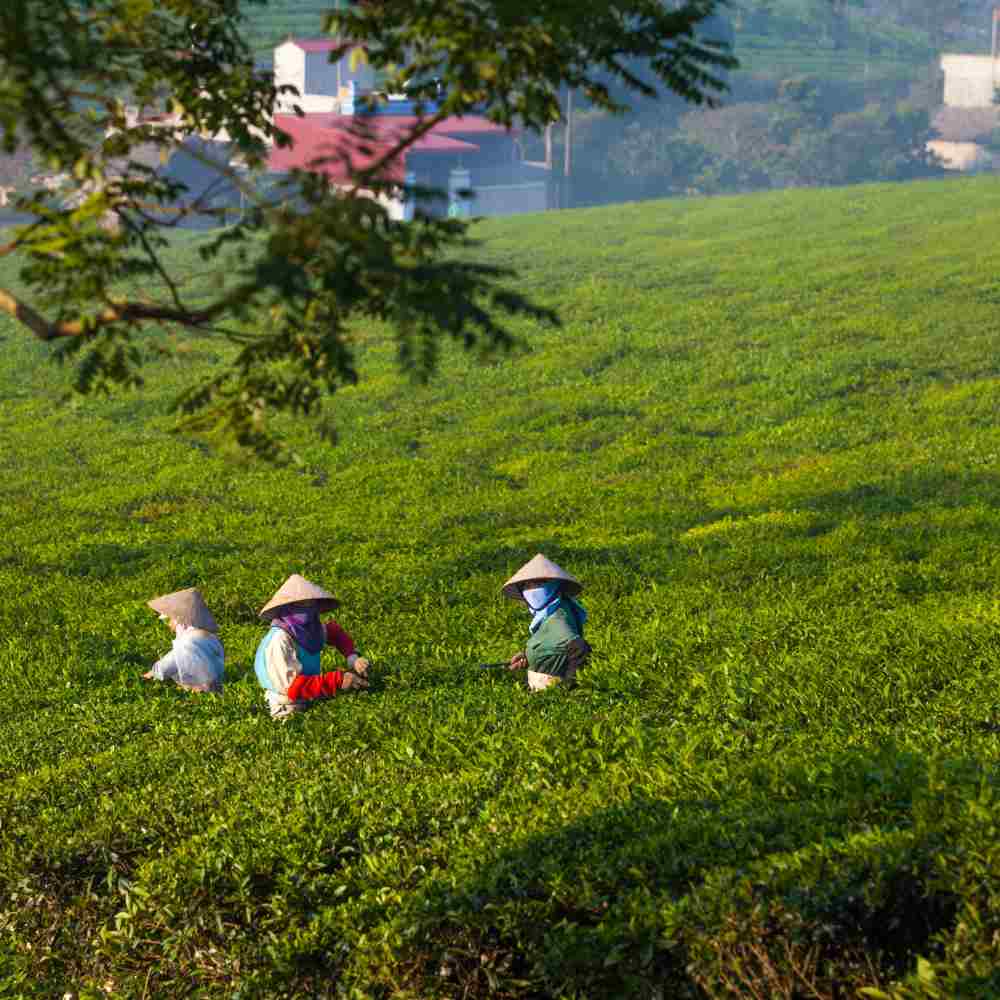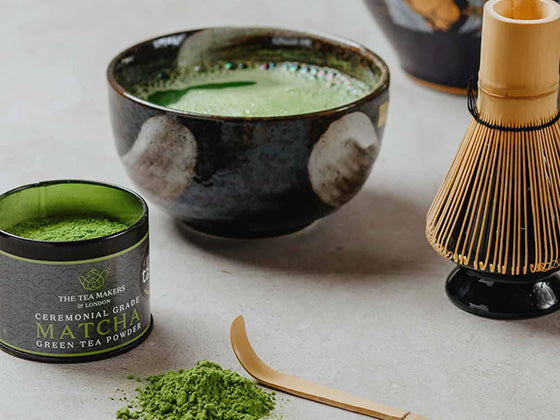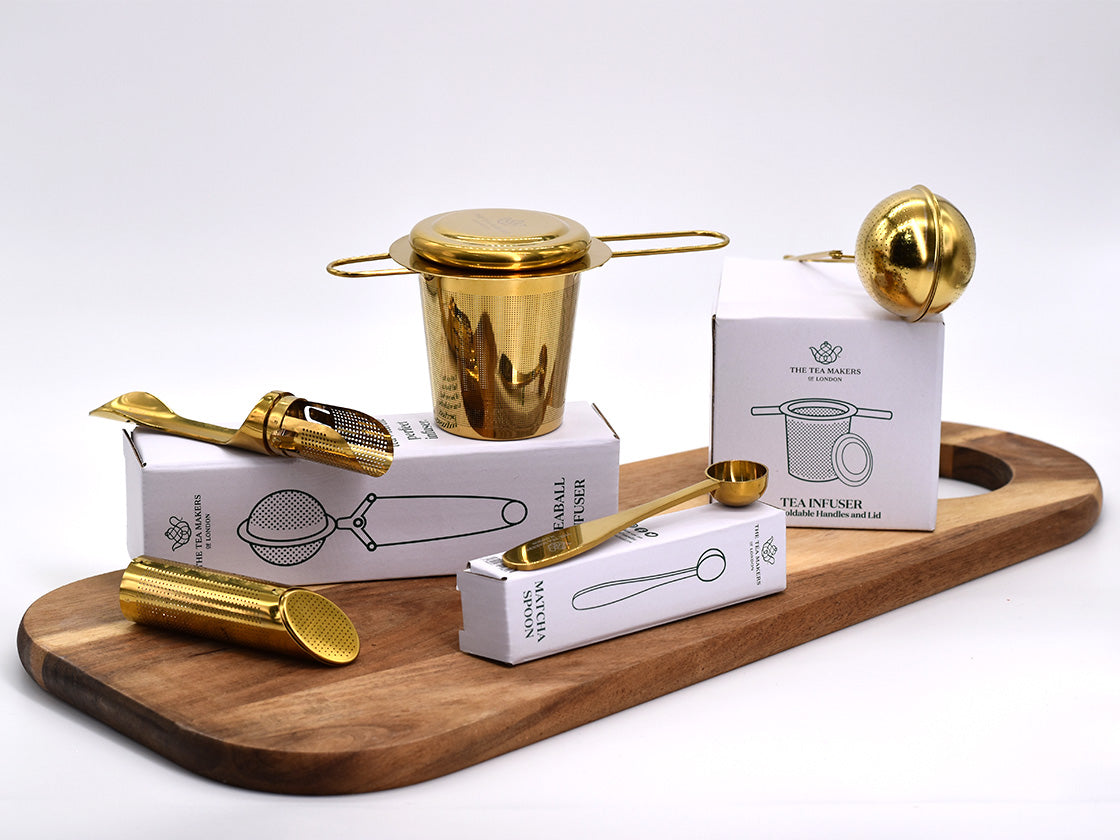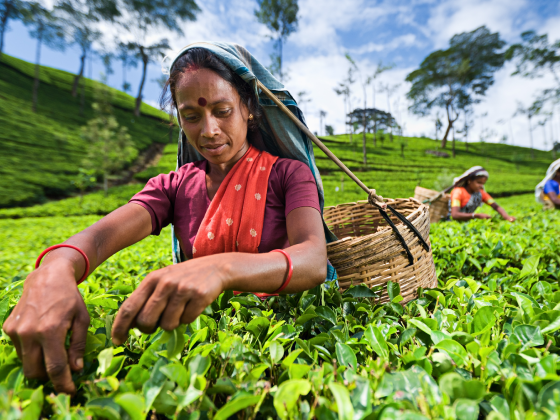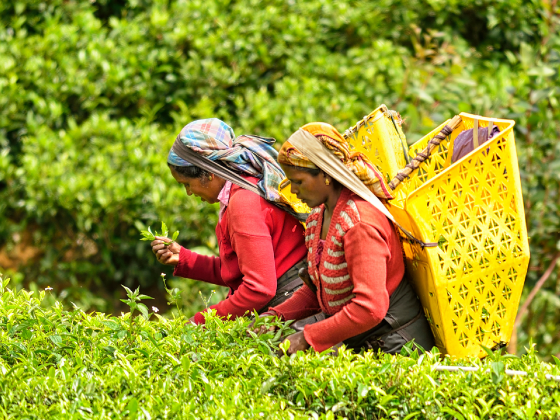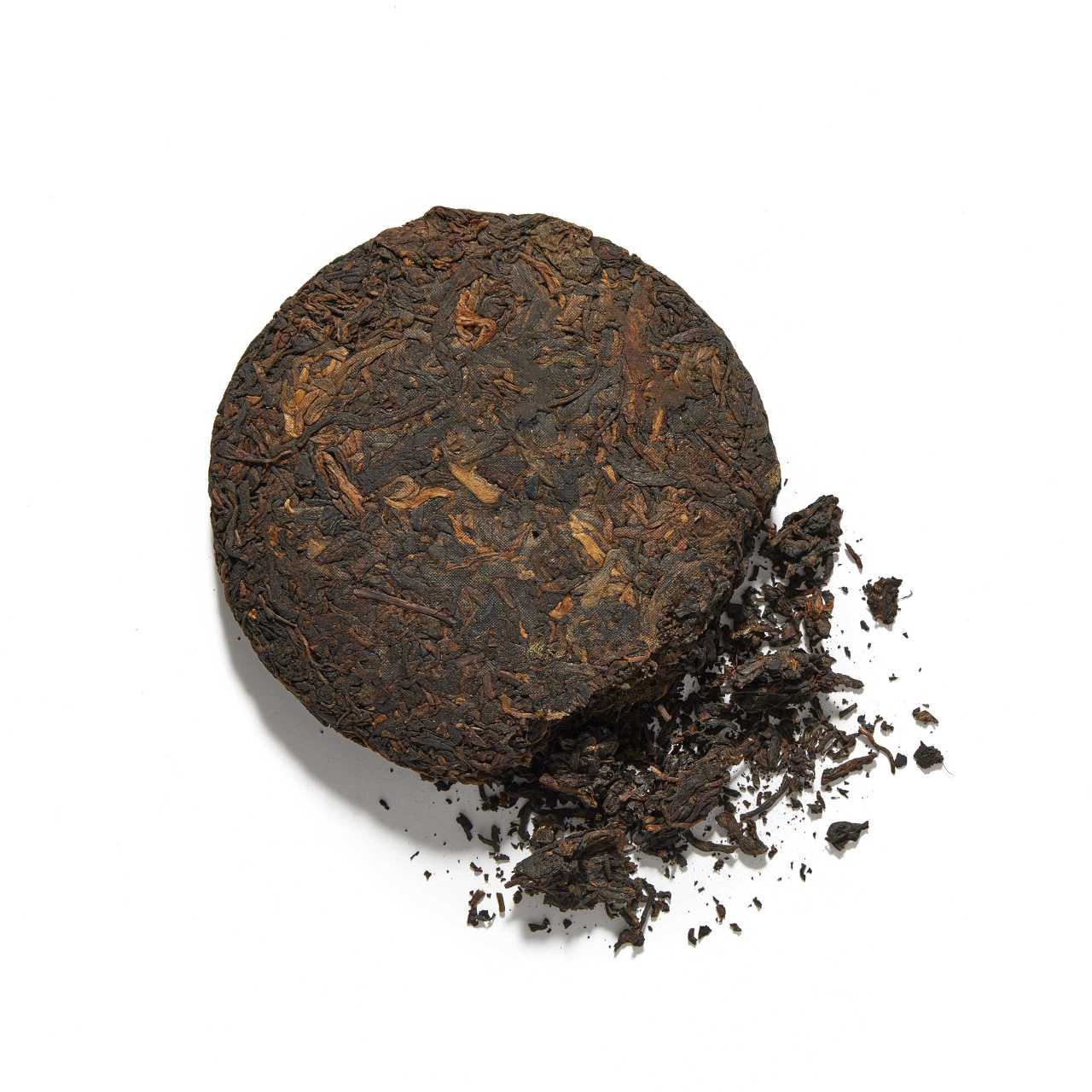
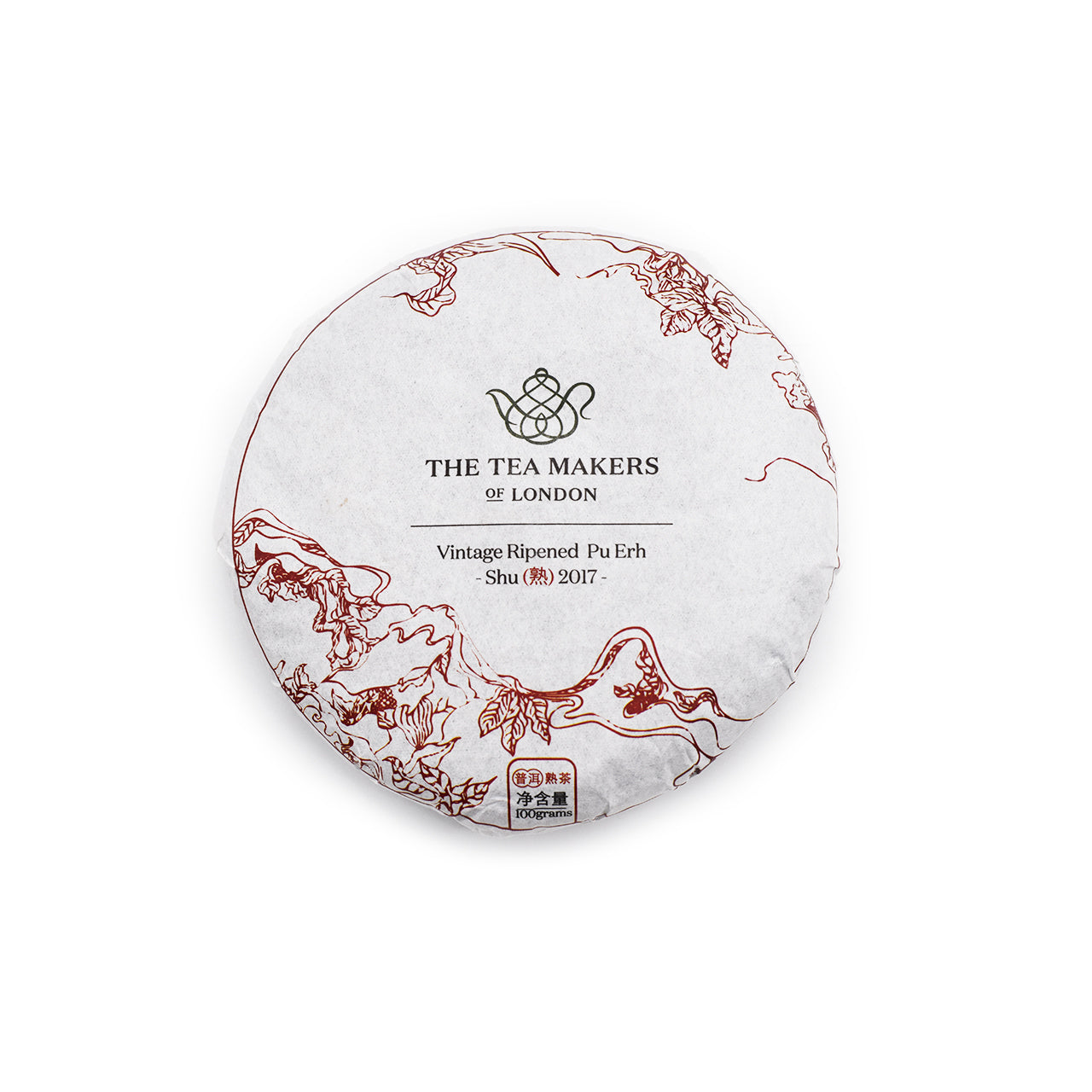
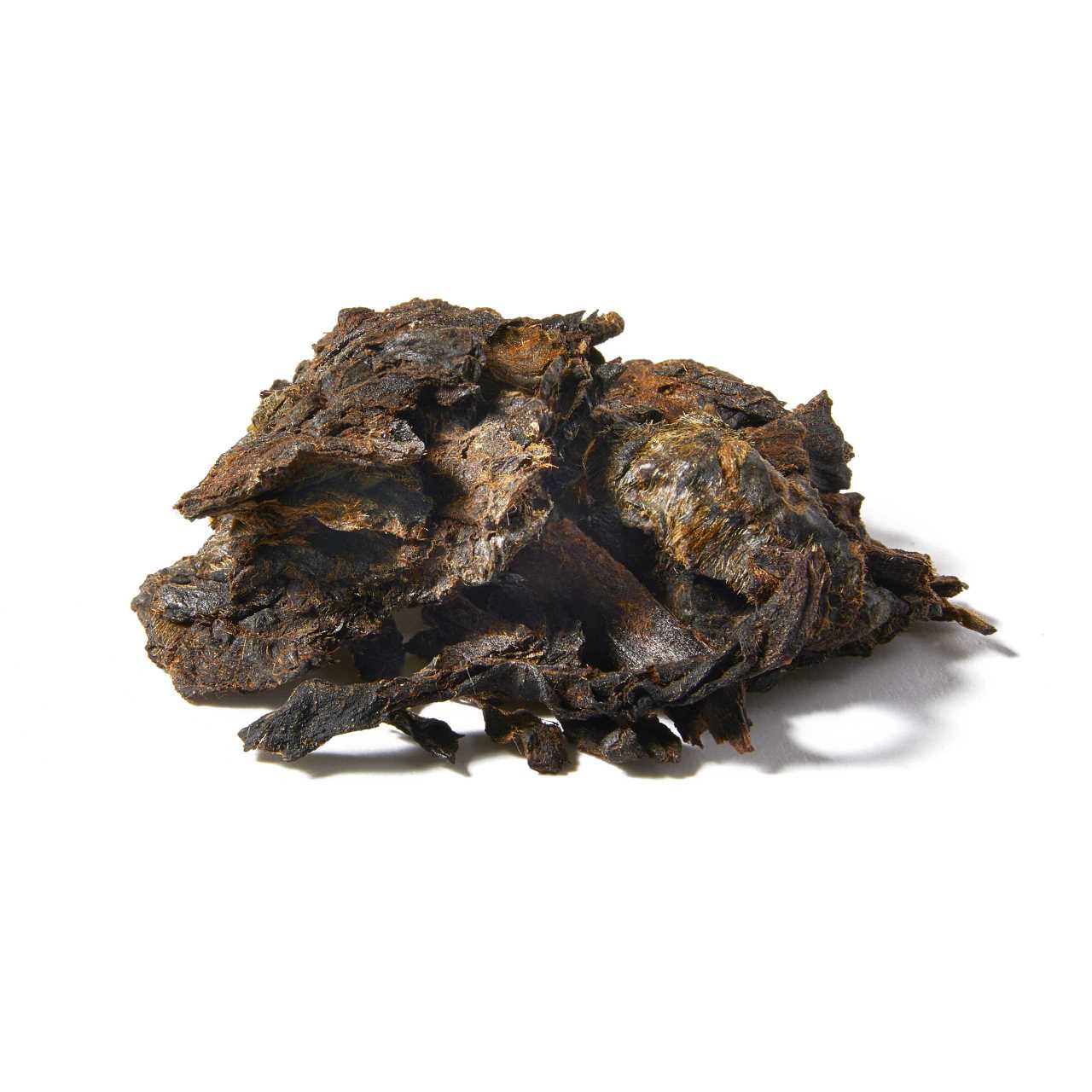
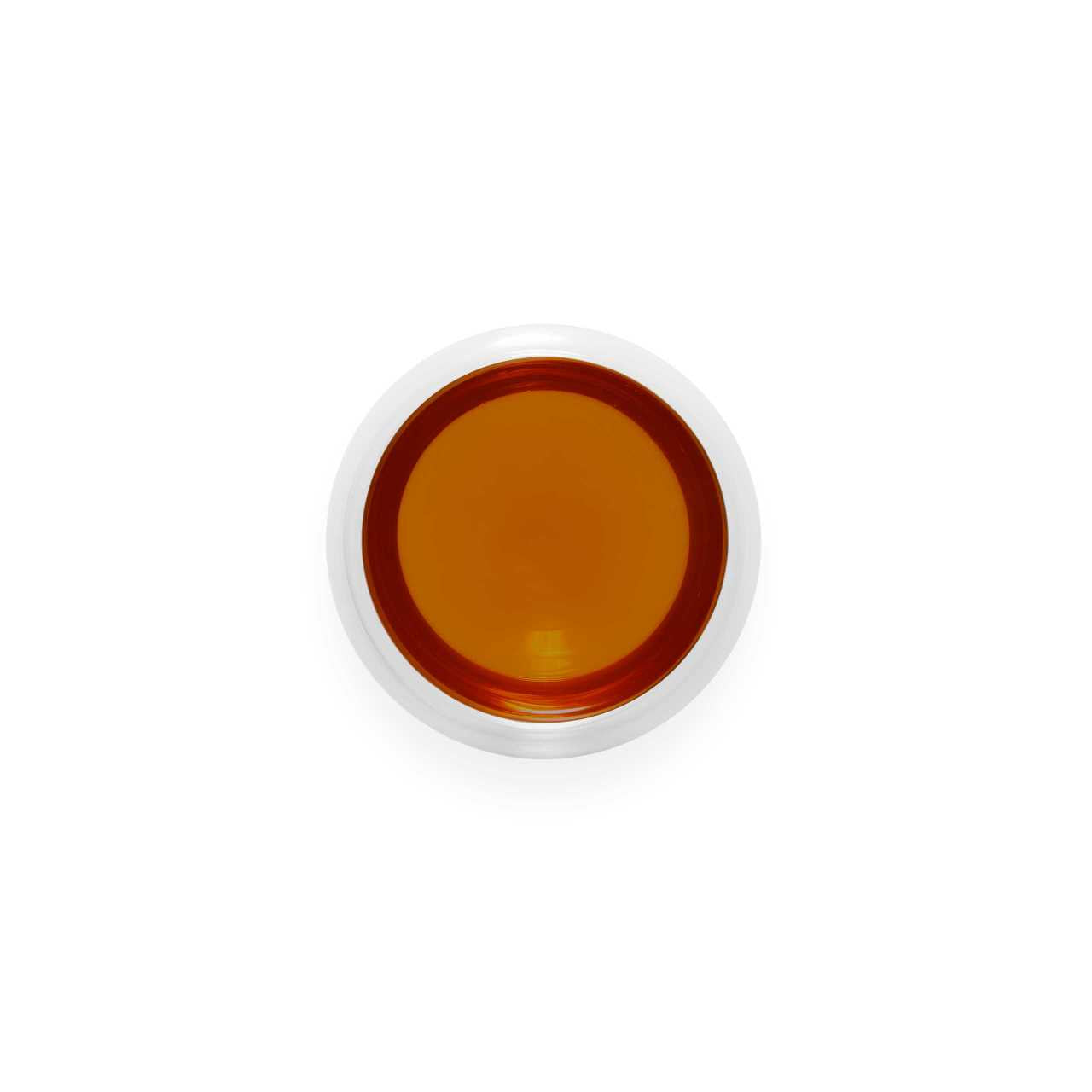
Ripened Cooked Pu-Erh Cake
Bold, smooth and woody, our Ripened Cooked Pu-erh Cake from Yunnan offers an authentic slice of Chinese tea-making tradition, perfect now or for future drinking.
Choose options
Bold, smooth and woody, our Ripened Cooked Pu-erh Cake from Yunnan offers an authentic slice of Chinese tea-making tradition, perfect now or for future drinking.
Bold, smooth and woody, our Ripened Cooked Pu-erh Cake from Yunnan offers an authentic slice of Chinese tea-making tradition, perfect now or for future drinking.
This is the kind of cake we like: long-lasting, full of complex characters and with health benefits, to boot. Meticulously produced and packaged, our Ripened Cooked Pu-Erh Cake is an authentic Chinese tea that gives a brick-red infusion with a woody aroma and a wonderfully deep taste.
Produced in 2017 in Yunnan province, south-western China, this luxury ripe Pu-erh tea imparts an earthy flavour with hints of mushroom and a smooth mouthfeel. We don't recommend adding anything to this characterful speciality tea, though you could give it a dash of milk or honey to taste, if you like.
As a Ripened, or 'Shu', Pu-erh, our tea is made from the base Pu-er product called Mao Cha (meaning 'coarse' or 'unfinished' tea) which has been taken through an extra processing step called wet piling, carried out to hasten the ageing process. Our Cooked Ripe Pu-erh Cake was produced in 2017 and is made of gently rolled, curly brown leaves. Pu-erh can take several different forms, but ours is shaped into the frequently used Bing Cha disc-like shape – stamped for authenticity and beautifully wrapped in paper.
What are the health benefits of Pu-erh tea?
While less studied than green and black teas, Pu-erh – which, in the first stage of production, is processed in the same way as green teas – has been linked to several health benefits. These include lowered blood pressure and cholesterol, and in particular 'bad' LDL cholesterol – possibly due to the presence of lovastatin, produced by the fungi that occur in Pu-erh teas during the fermentation process. As a fermented product, Pu-erh tea may also contribute to gut health by introducing beneficial bacteria into the microbiome.
What is Ripened Pu-erh?
Shu Pu-erh Cha, or 'Ripened Pu-erh Tea', is made in Yunnan using the wet piling ('Wo Dui') processing method. Invented in the early 1970s, the technique was developed to imitate the long ageing process of the original Sheng, or Raw, Pu-erh teas, which can take years to develop flavour complexity.
Sometimes described as 'cooking', wet piling works by approximating the ageing process via prolonged bacterial and fungal fermentation of the tea leaves in a warm, humid environment under carefully controlled conditions.
Producers start with Pu-erh Mao Cha, made from leaves of the assamica variety of Camellia sinensis that have been withered, pan-fired, then rolled and dried in the sun. To achieve fast 'ripening', the leaves are then given the wet piling treatment, which involves piling them up, dampening and covering them with wet cloths, then leaving them for upwards of 45 days. Occasional turning of the tea leaves and mixing them around ensures an even fermentation.
How to store Pu-erh cake
Pu-erh teas are best stored in a cool, dry place, away from temperature fluctuations and odours. If you intend to drink this tea within five years, we recommend gently breaking up the cake into small pieces, ideally using a Pu-erh prying pick (you could use a small blunt knife, in a pinch). This will leave more surface of the tea exposed to air, allowing for further oxidation and flavour complexity to develop.
Alternatives to Ripened Pu-Erh Cake
Now you've tried this Shu Pu-erh, you'll want to experience that other Pu-erh 'personality' – the Sheng style – and there's no better tea to try for comparison than our smooth and clean-tasting Raw Pu-erh Cake, also delivered in a solid form. Alternatively, you might like to try our loose-leaf varieties of this Yunnan speciality tea: perhaps our Yunnan Pu-erh, with its exceptional earthy notes; or our Lincang Ripe Pu-Erh, aged for nine years and from a premium Pu-erh-producing district of this historic tea-producing region.
Crafted from rosewood and brass, our Pu-erh prying pick is an essential tool to break apart your Pu-erh Cake. Also, to get the most authentic brewing result for your Pu-erh tea, we recommend that you use a Gaiwan from our Teaware store. For more speciality Chinese brews, from Jasmine Dragon Pearls to Lapsang Souchong, browse our Tea Shop.
This tea offers an wet wood and musky aroma and deep red infusion. A robust cup with earthy and oak notes and cacao and spicy mouthfeel.
Ripened, Cooked Chinese Fermented Tea
